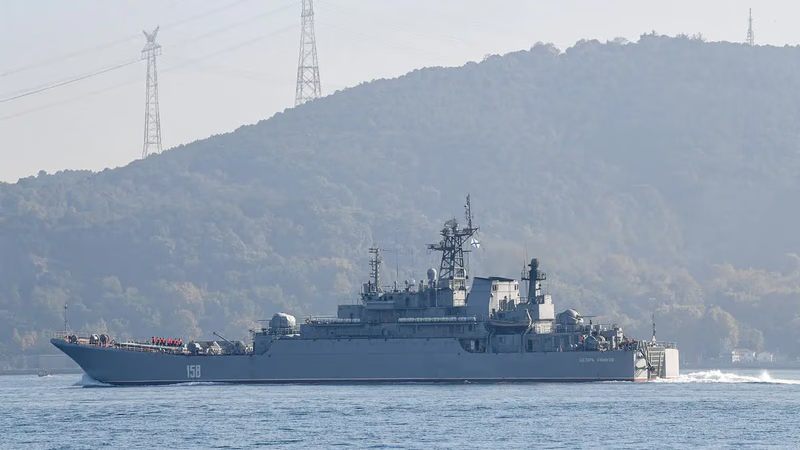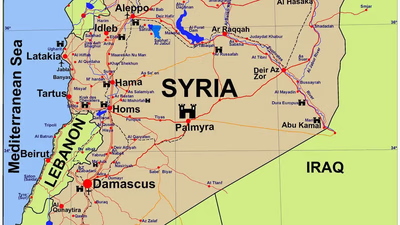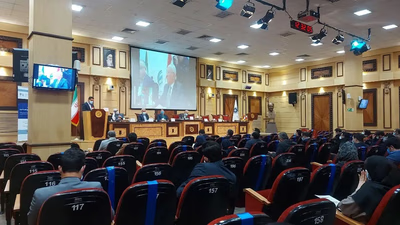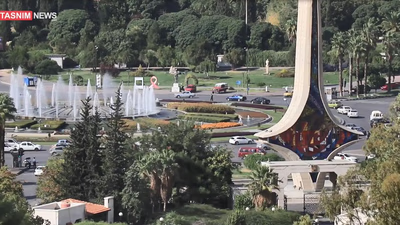
Port of Latakia: Key hub for commodity trade in Syria.
Located on the country's western coast, the Port of Latakia is Syria's main seaport and the largest port in the country. It handles a significant portion of Syria's maritime trade and serves as a major hub for container shipping, general cargo, and bulk cargo. The port has both commercial and industrial areas and offers facilities for storage, loading, and unloading of goods. Situated near the city of Tartus, the Port of Tartus is another important seaport in Syria. It primarily handles bulk cargo, including petroleum, minerals, and agricultural products. The port has facilities for loading and unloading cargo and serves as a link for trade with neighboring countries.
Syria has been affected by the ongoing civil conflict since 2011, which has had an adverse impact on its maritime transportation infrastructure. However, efforts have been made to maintain and improve port facilities despite the challenges. Reconstruction and development projects are underway to restore and upgrade port infrastructure, aiming to enhance connectivity and trade in the future. With the escalation of the Syrian crisis and the disappearance of its position in the world market, as well as the role of transit of goods that Syria played years ago between the Arab countries of the Persian Gulf and Europe, this position now seems to have been lost. According to a news item published in August 2013, in the past, 30,000 shipments of goods passed through Syrian territory annually, transporting various goods from the Arab countries of the Persian Gulf to Europe and vice versa.
These shipments, which were usually transported by truck, passed through Jordan and Turkey, which played a significant role in the transit profitability of these countries. The Syrian war prevented many of these goods from being sent to Europe via Syria. The Syrian Free Zones are located on the Mediterranean coast and at Damascus International Airport, as well as in other important domestic areas of the country, to be of special strategic importance. Authorized activities in the free zones of Syria include commercial, industrial and free-market activities.
Benefits of investing in the Free Zones of Syria include tax and duty exemptions, freedom to transfer capital and profits, freedom to employ foreign and domestic labor in projects in the mentioned zones, presentation of a certificate of origin of Syria or a free zone for products. He mentioned the production in these areas and providing all the necessary infrastructure for projects in free zones such as water, electricity, telephone, highway, sewage, and so on. The free zones of this country are Latakia Zone, Aleppo Free Zone, Latakia Port, Adra Free Zone, Damascus International Airport Free Zone, Tartus Port Free Zone, and Damascus Free Zone.
Syria's coastal cities, including Latakia, Tartus, and Baniyas, are connected through coastal shipping routes. Smaller vessels transport goods and passengers along the coast, providing an important means of domestic transportation and trade. Syria's ports play a crucial role in facilitating international trade. They handle imports and exports of various goods, including oil and gas, minerals, agricultural products, manufactured goods, and containers. The ports serve as gateways for trade with countries in Europe, Asia, and Africa, enabling the import and export of goods through maritime routes.
-

Goods imported into Syria are subject to customs duties based on valuation and tariff rates set by the Syrian Customs Authority. Import and export controls are enforced for national security, public health, and environmental protection, requiring compliance with licensing and permit regulations. The Harmonized System (HS) is used for customs classification, necessitating accurate tariff code usage by importers. Temporary importation is allowed under specific conditions, requiring guarantees for potential duties. Customs clearance involves documentation submission and payment of fees. Non-compliance can lead to penalties such as fines or legal consequences. Accurate customs declarations are essential, as the Syrian Customs Authority may verify declared values or use alternative methods if necessary. Syria participates in international trade agreements that may offer preferential treatment for certain goods.
Various entities, including foreign project companies and international organizations, can import goods under specific conditions, often requiring re-exportation after use. Tourists can bring personal vehicles temporarily without tax obligations. Factories can import raw materials tax-free if they export their products. The customs valuation process relies on transaction value but may involve audits and inspections to ensure compliance with laws and regulations.
-

Syria"s geography is diverse, featuring coastal plains, mountain ranges, and deserts. The western coastal region is fertile and densely populated, with key cities like Latakia and Tartus. Inland, the Anti-Lebanon Mountains define the western border, while the Euphrates River and Lake Assad are significant water bodies. The country"s varied landscapes influence its agriculture and economic activities. Syria"s economy relies on industry, agriculture, trade, oil, and tourism but faces challenges due to high population growth and fluctuating oil prices. Trade liberalization through regional agreements may impact local industries as they adapt to increased competition. The capital city of Damascus is central to trade activities, while Aleppo serves as a major urban center. Overall, Syria"s geographical features play a crucial role in shaping its economic landscape.
-

The Port of Latakia is Syria"s primary seaport, crucial for maritime trade, handling container shipping, general cargo, and bulk cargo. The Port of Tartus also plays a significant role, mainly dealing with bulk cargo like petroleum and agricultural products. Despite the ongoing civil conflict since 2011 impacting infrastructure, efforts are underway to enhance port facilities and restore trade connectivity. Historically, Syria was a vital transit point for goods between the Persian Gulf and Europe, with around 30,000 shipments annually before the conflict disrupted this flow. The Syrian Free Zones offer strategic advantages for commercial activities, including tax exemptions and infrastructure support. These zones are located in key areas such as Latakia and Damascus International Airport. Coastal shipping routes connect Syria"s cities, facilitating domestic trade alongside international operations. Ports are essential for importing and exporting various goods across Europe, Asia, and Africa.
-

The Central Bank of Syria (CBS) oversees the country"s banking sector, ensuring compliance with monetary policies and regulations. Banks must obtain licenses from the CBS, which sets capital requirements and governance standards. Foreign exchange regulations are in place to manage currency flows and cross-border transactions. While foreign banks cannot establish branches in Syria, joint ventures with a majority Syrian ownership are permitted. The banking system is undergoing reforms to allow private banks to operate alongside state-owned institutions. Taxation in Syria includes corporate income tax rates ranging from 10% to 45% and payroll taxes between 5% and 12. 5%. Banks must maintain adequate capital levels and adhere to prudential regulations for stability.
Consumer protection measures are also included in banking laws, ensuring fair practices and transparency for customers. Additionally, banks are required to comply with anti-money laundering (AML) and counter-terrorism financing (CTF) regulations, implementing customer due diligence and reporting suspicious activities. "
-

Syria"s recent ban on Turkish imports has opened opportunities for Iranian exporters, particularly in sectors like energy, construction, medical equipment, and food industries. The reconstruction efforts in Syria present a significant market for Iranian goods, given the country"s large consumer base of 22 million people. With Iran"s competitive pricing and political influence in the region, Iranian products are well-positioned to meet the demands of the Syrian market. The absence of Turkish and Egyptian competition further enhances Iran"s prospects in Syria. Additionally, the geographical location of Syria allows access to European and African markets, creating further trade opportunities for Iranian businesses. Identifying new markets and facilitating exports will be crucial for economic development in both countries. The potential for technology transfer alongside exports can strengthen international trade relations and support industry growth.





